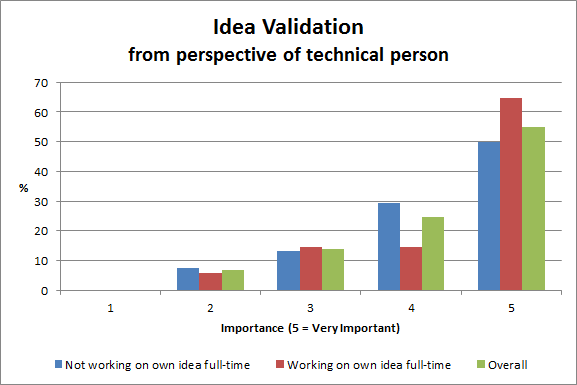In our first few months working on Startup Giraffe, we’ve personally met with about 50-60 entrepreneurs. Over the course of our meetings, we’ve often come across people in the same predicament:
A Brilliant Entrepreneur (let’s call him Abe) with no technical experience has a great idea for a web or mobile app. Abe’s ready to quit his day job to devote himself making his app successful.
He’s reluctant to go with a dev shop like Startup Giraffe to produce his product. He’s worried about putting off finding a technical co-founder until later because he thinks he’s just putting off an inevitable problem. He would also rather save money on development costs if he doesn’t “need” to spend money.
If he can just find someone, Abe will be set. However, finding that someone isn’t always easy. While we wholeheartedly encourage entrepreneurs to seek out and collaborate with technical co-founders, the odds are stacked against early stage entrepreneurs like Abe. Why?
Good technical cofounders want to see traction
Thanks to improvements in technology, the sheer number of people using the internet and mobile phones, and a bit of mania around startups, there are now vastly more startups than there were several years ago.
As a result, good tech people have vastly more options than they did even a few years ago. Demand for Ruby on Rails and iOS developers is historically high, and tech companies of all sizes are now fighting tooth and nail over them. (We’re pretty sure there will be waterslides and rollercoasters in Google’s offices within a few years).
These developers are now in a much better position to make informed decisions about their futures. Given the choice between a startup with 10,000 users or $10,000 in sales and one with 0 users and $0 in revenue, the vast majority of developers will opt for the former (unless you’re Jack Dorsey).
LaunchBit’s recent survey of developers shows just how much traction matters to developers:
Among potential technical cofounders included in the survey, some 80% said that idea validation was either of “great importance” or the utmost importance. With a working version in hand, our prototypical entrepreneur Abe will be in a much better position to find a truly talented technical co-founder to join him.
Searching for a technical cofounder is time-consuming
“Pre-dodgeball I went thru 3-4 years thinking I was going to meet some magical engineer who would build all the stuff I was thinking about.”
– Dennis Crowley, co-founder of FourSquare
The recent proliferation of “Find a Cofounder” events offers non-technical entrepreneurs another great way to find co-founders. These events give founders and developers a chance to get a rough sense of the other’s goals and personalities before embarking on a project together. Still, they inevitably put both parties at a disadvantage. For the business person, it can be very difficult to gauge the developer’s technical expertise. Likewise, the developer can only learn so much about the skills and personality of a business co-founder over a drink in a casual, non-work environment.
Most of the people we’ve met have been searching for a technical co-founder for months. In today’s favorable climate for investment, time is money. While many have argued whether we are in a tech bubble, most people agree that the “frothy market” for investment won’t last forever. Those who develop products sooner will be in a better position to get funded before the froth subsides.
People who are not being paid work slower
“You’re more likely to bump into a piece of talking bacon riding a unicorn on their way to a leprechaun’s pool party than finding a software engineer who will work for free.”
– Captain Recruiter
Bottom line, people need to make ends meet. No matter how great your idea is, any developer who is working on your project for no pay will need to earn money somehow. With your product on the developer’s back-burner, timelines can drag on and motivations can grow stale. Developers are also more apt to cut corners or leave a product entirely if they are not compelled by money to complete it.
You save equity if you have a product already
An entrepreneur with a working version that proves their concept is valuable is in a much better position to negotiate equity arrangements with technical co-founders. In a post on determining how much equity to give a technical co-founder, Nathan Hurst suggests that having a prototype with either users or revenue can make a difference of 15-25%.
But after all this, are there actually examples of companies that have succeeded without a true technical co-founder? After all, what would Facebook be without Mark Zuckerberg? Microsoft without Bill Gates? Twitter without Jack Dorsey? Google without Larry and Sergey?
Among the companies that successfully outsourced development in their early stages are Digg, Ustream, AirBnB, Squidoo and Alibaba. We’ll be adding to this list as time goes on, so let us know if you know of more tech companies that started without technical co-founders.
Agree? Disagree? Let us have it in the comments section…

